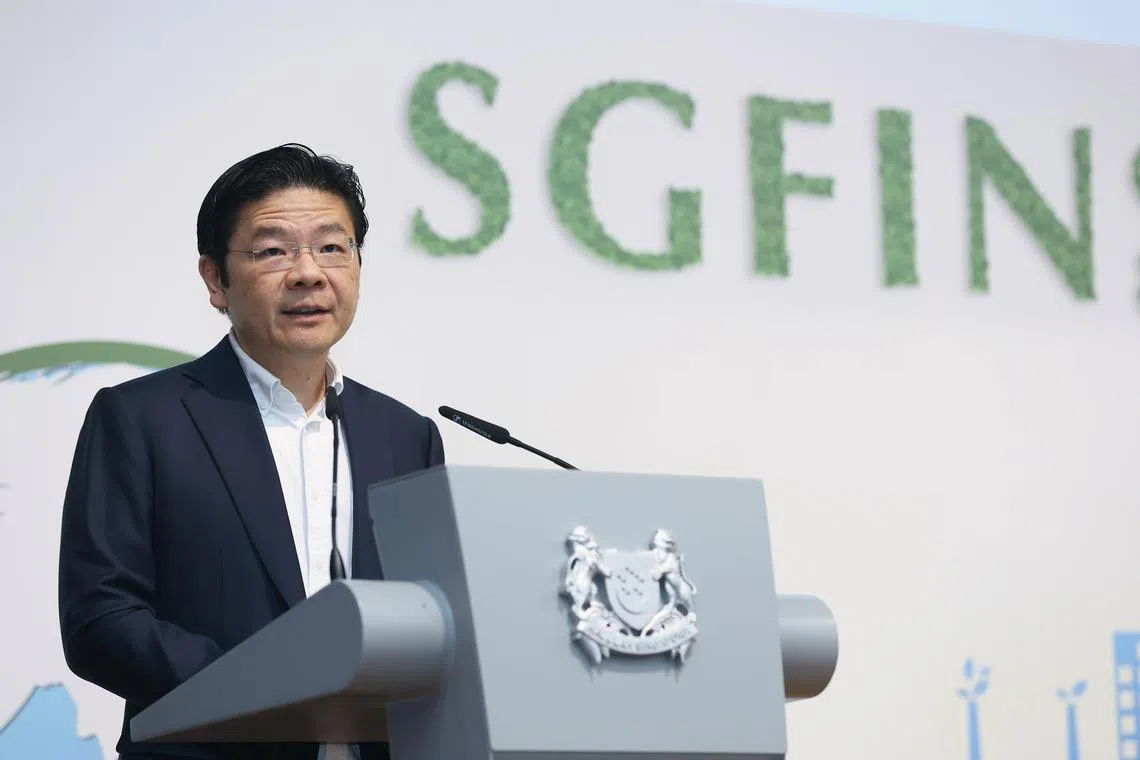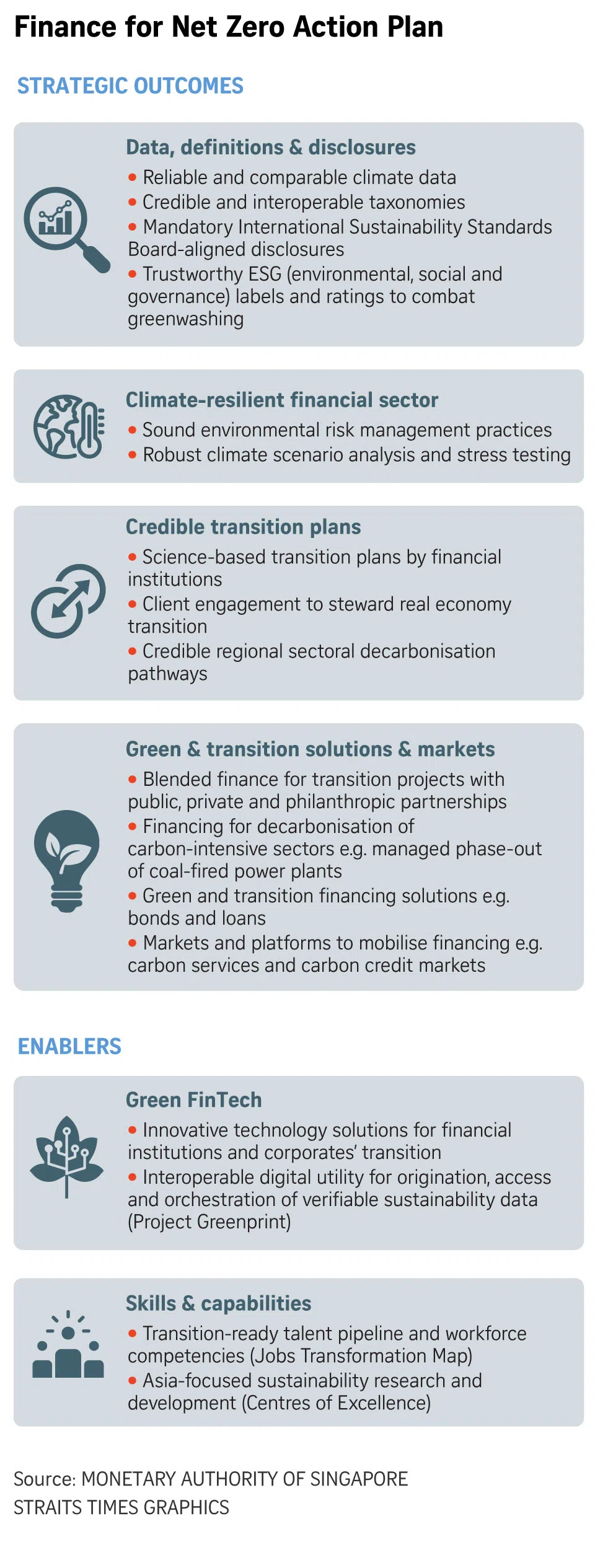MAS expands green finance plan to quicken decarbonisation of economy
Sign up now: Get ST's newsletters delivered to your inbox

Among the goals is the need for clear definitions of what activities are considered green, said DPM Lawrence Wong at the opening of the Sustainable and Green Finance Institute.
PHOTO: MCI
SINGAPORE – To decarbonise the economy quickly, Singapore will expand its focus, which is now solely on green finance, to one that also includes transition finance by mapping out clear definitions, encouraging innovation and extending grants.
Known as Asia’s oil hub, Singapore will achieve this through the Monetary Authority of Singapore’s (MAS) refreshed Finance for Net Zero Action Plan.
Transition finance is a form of financial support to help high-carbon companies become greener via long-term initiatives.
It is a particularly crucial element in Singapore’s quest to swop black gold for green energy, given that the Republic was ranked the world’s sixth-biggest exporter of refined petroleum in 2021, based on data from the Observatory of Economic Complexity.
The plan is an expansion of MAS’ Green Finance Action Plan, launched in 2019, for Singapore to be a global hub for green finance.
Among the goals is the need for clear definitions of what activities are considered green, what are not, or those that are in transition, said Deputy Prime Minister and Finance Minister Lawrence Wong.
Speaking at the official opening of the Sustainable and Green Finance Institute at the National University of Singapore (NUS) on Thursday, Mr Wong, who is also deputy chairman of MAS, said Singapore’s Green Finance Industry Taskforce has led the development of a taxonomy to classify activities according to a “traffic light” system.
He said MAS will strengthen the credibility and interoperability of the classifications across jurisdictions. This will provide financial institutions with greater clarity that will help with both cross-border green and transition financing flows.
“We, in Asia collectively, emit about half of global greenhouse gas emissions. But at the same time, millions of people in the world, in this region, still do not have access to electricity, modern sanitation and drinking water. So, it is a big challenge,” Mr Wong said.
He added that the region will need more energy to meet the growing needs of its populations.
For now, most of this is being met through fossil fuel, including coal. So, it is vital to find a way to ensure an orderly and just energy transition in Asia, he noted.
Currently, Singapore is still a regional trading hub for coal, natural gas and oil products. It supports dozens of finance houses that specialise in the commodities, with more than 100 global chemical companies operating in the city.
Under the expanded plan, MAS will work with the Singapore Exchange and other agencies on a road map for key financial institutions and listed companies to make climate disclosures aligned with the International Sustainability Standards Board’s (ISSB) standards. The ISSB has been working on a global benchmark for sustainability disclosures, and this is expected to be finalised by mid-2023.
Among other things, MAS aims to build sound climate and environmental risk management practices with financial institutions and promote the adoption of credible transition plans, as well as facilitate financial innovation and catalyse credible green and transition solutions and markets.
Based on estimates, Singapore accounts for more than 50 per cent of cumulative issuances in Asean, Mr Wong said, adding that last year, more than $30 billion worth of sustainable debt was issued. Issuances refer to bonds or stocks offered in the market by the Government or firms to raise funds.
To build on this, he said MAS will set aside a total of $15 million to enhance and extend the sustainable bond and loan grant schemes for a further five years till end-2028, and to include transition bonds and loans.
The central bank will also extend its Insurance Linked Securities (ILS) Grant for three more years to end-2025. This is meant to defray the costs of issuing catastrophe bonds that focus on Asia’s risks.
The ILS grant has supported the issuance of 23 catastrophe bonds in Singapore since 2018.
At the opening of the institute, Mr Wong noted that talent is the most important factor to Singapore being a successful green finance hub.
So, besides tapping the graduates of the institute, Singapore also needs to reskill and upskill those who are now working in the financial services sector, he said.
The institute started operations in December 2021 and was set up to develop research and capabilities in green finance and sustainability, as well as shape policymaking in the real economy and financial sectors.
At the institute’s opening, NUS president Tan Eng Chye said: “The institute’s emphasis on education and data-driven approach to research will drive the development of innovative and progressive financial solutions for sustainable development in Asia and the world.”




